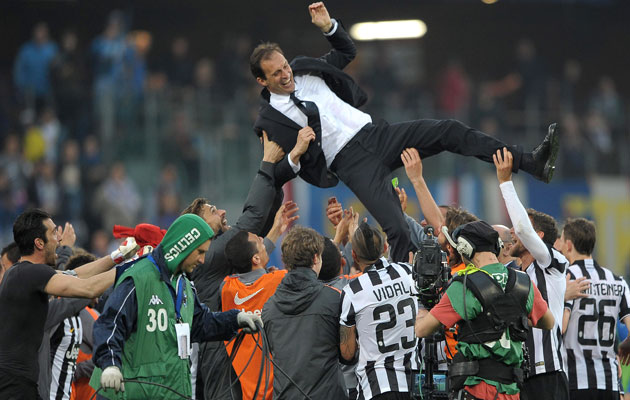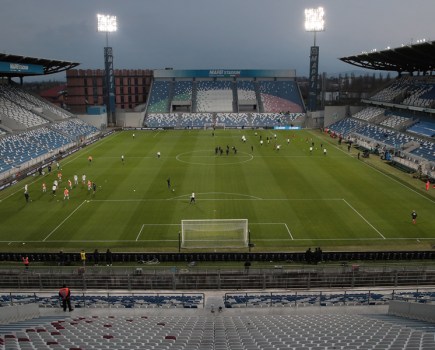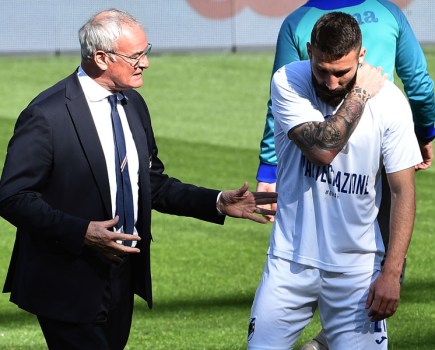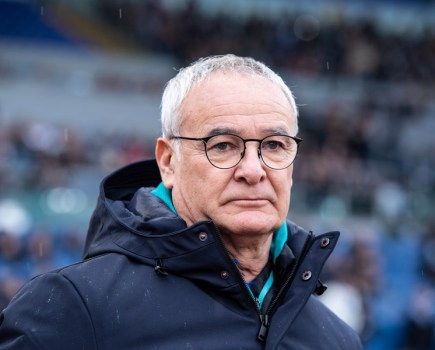A splendid Juventus in last season’s Champions League Final or the squalor of Parma in the bankruptcy court: which of these is the most representative face of Italian football?
As the curtain rises on another Serie A campaign, it is obvious that the game continues to reflect the highs and lows of the mesmerising society in which it is played. Modern Italy, after all, moves easily from the beauty of a Ferrari to the disgrace of widespread organised crime.
Not for nothing, two days after the 3-1 Champions League Final loss to Barcelona, Juve president Andrea Agnelli very publicly stated that the good showings in Europe by his club during the season, and by Fiorentina and Napoli in the Europa League, owed little to “sistema Italia” but rather everything to the good work of the three clubs involved.
On the eve of this new campaign, Italian football offers a now almost-traditional schizophrenic vision.
On the one hand, we have a movement of the highest standards, reflected not only by the quality of football played by such as Juventus, but also by the international demand for Italian know-how exemplified by coaches such as Carlo Ancelotti, Fabio Capello, Marcello Lippi, Roberto Mancini and, even at the ripe old age of 76, by Giovanni Trapattoni.
On the other hand, we have an Italian game humiliated not only by the ignominy of the Parma collapse but also by a seemingly unending series of match-fixing scandals, often related to both international betting syndicates and to organised crime. Yet again, the football federation’s prosecutor, Stefano Palazzi, will be working overtime to deal with the implications of May’s “Catanzaro” enquiry, which involves mainly Lega Pro teams, and the Catania enquiry in June, involving essentially the club’s then-owner Antonino Pulvirenti.
In both cases, Palazzi has to work quickly so that eventual federation disciplinary proceedings (enforced relegations/promotions) are resolved in time for the compilation of the new Serie B and Lega Pro fixture lists. While Serie A is scheduled to begin on the weekend of August 22/23, the Serie B and Lega Pro seasonal starts have been delayed until September 5/6 because of these enquiries.
If recent scandals in Italian football have involved huge gambling heists, the most recent Catania one is almost endearingly old fashioned by comparison. Owner Pulvirenti claims he set about fixing end-
of-season games not to make millions by betting but to ensure that his side avoided relegation to Lega Pro.
In contrast, the “Catanzaro” investigation, which saw 50 people arrested last May, bears the depressingly familiar look of a scandal in which online betting syndicates, local mafiosi and under-paid lower-division footballers form an explosive cocktail.
As well as these investigations, Italian football is still haunted by the Cremona-based, 2011-initiated “Last Bet” match-fixing investigation, run by local prosecutor Roberto Di Martino and allegedly involving betting syndicates in the Balkans, the Far East and Italy. In early July, Di Martino indicated the scope of his enquiry when he requested that 104 people be summoned to stand trial in relation
to at least 60 suspect games – including a handful of Serie A fixtures.
Among those named were football royalty, including current national coach Antonio Conte, ex-Lazio striker Beppe Signori, current Lazio captain Stefano Mauri, former Italy international Christian Doni and Udinese coach Stefano Colantuono. Given Italy’s liberal use of the “Statute Of Limitations” clause, this trial may never arrive at sentencing but, in the meantime, it is guaranteed to cause a huge media fuss.
That certainly applies to Conte who, essentially, is charged with not having reported a typical, last day of the season Serie B relegation/promotion “fix” between Albinoleffe and Siena, the team he was then coaching. The story of this game, played in May 2011, is quickly told: Albinoleffe, threatened with relegation, needed the points while Siena, already sure of promotion to Serie A, did not.
Conte is accused of having known that there was an “agreement” between the Albinoleffe and Siena players to ensure that Albinoleffe won the game. The prosecutor argues that Conte should have “safeguarded the players’ moral conduct”, implying that he knew about the fix but chose not to intervene.
Given the snail-like pace of Italian justice, the trial may not begin until the end of the year or later, making it possible that Conte could find himself on trial right up to the eve of the European Championship in France next summer. Understandably, this is something which Conte would dearly like to avoid even if the football federation do not seem worried with president Carlo Tavecchio repeating that “Conte is innocent until he has been definitively condemned”.
What makes for remarkable reading, however, is a recent interview given to sports daily Gazzetta dello Sport by prosecutor Di Martino. In it, he suggests that the football federation and other sports authorities were not exactly enamoured of his enquiry, saying: “What is sure is that none of them ever came to my office, looking for detailed information.”
Di Martino goes on to say footballers have a “wrong attitude” that is ground into them from their youth-team days, adding: “Players are often convinced that they have done nothing wrong and the last thing in the world that they expect is to end up in prison. Seventeen players, including Mauri and ex-Genoa midfielder Omar Milanetto, ended up serving jail time in the summer of 2012.
“They think that a mutually convenient agreement between two teams is normal. But it is not. On the contrary, it is a penal and sports felony.”
Di Martino also sounds a dire note of warning for the highest level of the game, saying: “At the beginning of the investigation, I thought that the problem concerned only the Lega Pro. I was wrong. It is just as easy to fix a Serie A game, and if you look at the court documents you will find plenty of examples of this.”
All of that is for the future. As for the football out on the pitch rather than the courtroom, it inevitably still revolves around champions Juventus. Having lost the Champions League Final, Juve have opted to release three key figures of recent years: Andrea Pirlo (New York City), Carlos Tevez (Boca Juniors) and Arturo Vidal (Bayern Munich).
If there was something inevitable about the departures of 36-year-old Pirlo for the USA and 31-year-old Tevez for his native Argentina, the same does not apply to midfield dynamo Vidal.
Whereas the first two might have come to the end of their Juventus road, you could argue that Chile’s Vidal would still make an important contribution to the cause.
However, it would seem that the folk in Turin have opted to make a new start, replacing the above with players such as Argentinian striker Paulo Dybala (Palermo), Croat striker Mario Mandzukic (Atletico Madrid), Sami Khedira (Real Madrid) and Simone Zaza (Sassuolo). When he met the media on the first day of pre-season training, coach Massimiliano Allegri made plenty of positive noises, saying: “I am very happy with the team that we have put together.
“You cannot remain hooked on great players when they opt to follow another path. This year’s Champions League Final must not be an exception, it has to become the rule that we end up
among the top eight in Europe.
“Juventus are probably favourites again and the team to beat because we’re the strongest. but this year’s championship will be more balanced.
“The two Milan clubs and Roma have reinforced themselves and I think they will make a fight of it this year.”






